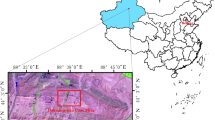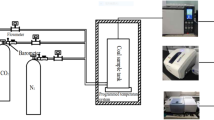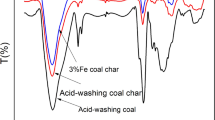Abstract
IT has long been appreciated that surface compounds as well as gaseous oxides are formed when carbons and oxygen interact. Rhead and Wheeler's original suggestion1 that the so-called surface oxides are intermediates in the overall reaction mechanism is not borne out by more recent work2,3, which shows that at least a proportion of the oxides should be regarded as by-products of the main reaction.
This is a preview of subscription content, access via your institution
Access options
Subscribe to this journal
Receive 51 print issues and online access
$199.00 per year
only $3.90 per issue
Buy this article
- Purchase on Springer Link
- Instant access to full article PDF
Prices may be subject to local taxes which are calculated during checkout
Similar content being viewed by others
References
Rhead, T. F. E., and Wheeler, R. V., J. Chem. Soc., 101, 846 (1912).
Barrer, R. M., J. Chem. Soc., 1260 (1936).
Strickland-Constable, R. F., Chem. and Indust., 771 (1948).
Author information
Authors and Affiliations
Rights and permissions
About this article
Cite this article
ARTHUR, J., NEWITT, E. & RAFTERY, M. Influence of Surface Oxygen in the Activation of Carbonized Coals by Partial Combustion. Nature 178, 157–158 (1956). https://doi.org/10.1038/178157b0
Issue Date:
DOI: https://doi.org/10.1038/178157b0
Comments
By submitting a comment you agree to abide by our Terms and Community Guidelines. If you find something abusive or that does not comply with our terms or guidelines please flag it as inappropriate.



